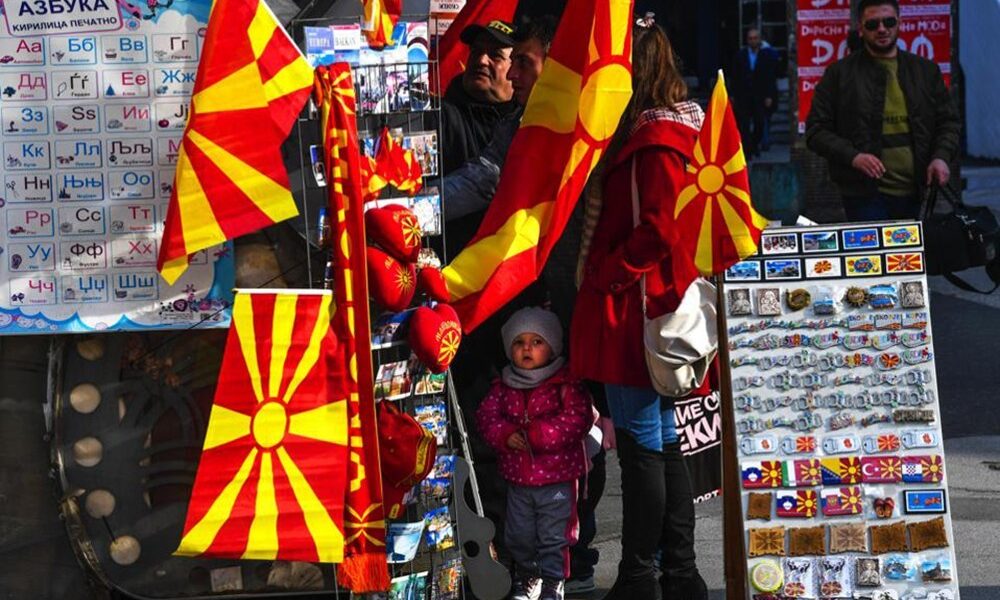
The coronavirus pandemic confirmed that the fragile local economy of Monastiri (Μοναστήρι; Битола) in Greece's neighbouring country now known as "North Macedonia", depends largely on the attendance of Greek citizens, according to Telma.
Monastiri as a border town between Greece and its northern neighbour, has many visitors daily from Greece, who due to the proximity use the lower prices for many services and products.
Greeks living close to the border with its northern neighbour would often go to their restaurants and cafes, use their hairdressers and beauty salons, among many other things. But due to the closed borders, the situation has completely changed.
The service that Greeks receive in the neighbouring country would cost more in Greece.
"There was life in the city," said Dimce Ivanovski from hairdressing studio Carmen-Bitola.
Greek visitors would get dental work done for much lower prices than in their home country. Now Monastiri doctors say they will hardly survive without their Greek patients.
Some services are oriented exclusively to work with the Greeks, and not only in Monastiri but also in Gevgelija (Γευγελή; Гевгелија). They will be completely out of work until the border is opened, said Goce Bejkovski, a dentist.
The sellers in the city market in Monastiri, too, say that with the crisis, the turnover has significantly decreased and the absence of Greeks is felt.
Greeks came on Saturdays and Sundays and bought vegetables. Now with this crisis, they are gone, said a seller in the city market.
Small businesses in Monastiri are on the verge of complete collapse, said business owners.
Monastiri was established by Philip II of Macedon in the middle of the 4th century BC and named City of Hercules upon the Land of Lynx (Ἠράκλεια Λυγκηστίς) in honour of Greek mythological hero Hercules.
According to a 1911 Ottoman census, there were 350,000 Greeks, 246,000 Bulgarians and 456,000 Muslims in the vilayet of Manastiri, while between 1878-1912 there were 11 Greek schools and only 5 Bulgarian and 3 Romanian schools.
The 2018 Prespa Agreement stipulates that the Ancient Macedonians, civilisation, culture and history is Greek, including the Sun of Vergina, as well as Philip II and Alexander the Great.
Greece also had to recognise a Macedonian language, but this is now under challenge from Bulgaria who claim that it is a Western Bulgarian dialect.
Sofia is demanding that Skopje stop its claims that there is a Macedonian minority in Bulgaria and to stop claiming the existence of a Macedonian language if it wanted to join the European Union.
The demands also came as the first ever Foreign Affairs Minister of Greece's northern neighbour, Denko Maleski, caused outrage when he said "We are past the time when Macedonian history was protected by the powerful Yugoslav federation and could, without pressure, selectively choose the building blocks of the Macedonian nation, and could cross out the mentions of ‘Bulgarian’ and write ‘Macedonian’ instead."
Over 70,000 people as of 2018 in Greece's northern neighbour, accounting for about 3.5% of the population, have Bulgarian citizenship too. Bulgaria is also offering citizenship to the same community in Albania.


